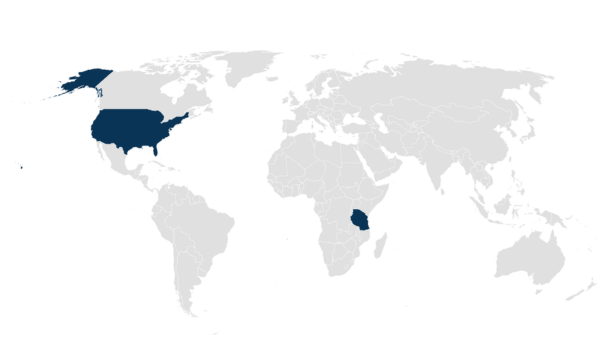Health Economics and Health Policy
The Health Economics and Health Policy research integrates innovative economic and policy analysis to address key health challenges spanning reproductive health, HIV prevention and the prevention of tobacco, nicotine, cannabis and other substances. Projects in reproductive health focus on enhancing access to pre-exposure prophylaxis and contraceptive services for young women through strategies like loyalty programs and discrete choice experiments, particularly in low-resource settings such as Tanzania. Research on tobacco and cannabis use investigates the broader economic, health and environmental consequences, including the costs of youth substance use on California’s school system and the environmental toxicity of tobacco and cannabis product waste. By combining behavioral economics, impact evaluations and environmental assessments, these research programs provide critical evidence to support effective healthcare delivery models and public health policies.
Projects
Cannabis Vaping and the Risk of Respiratory Symptoms for U.S. Youth and Young Adults
This study assesses the temporal relationship between cannabis vaping and respiratory symptoms in adolescents and young adults, aiming to inform policies to prevent cannabis use and reduce associated respiratory health issues.
- Principal Investigators: Tingting Yao, Wendy Max (Co-PI), Hai-Yen Sung (Co-PI)
- Funder: CFAR – Center for AIDS Research (UCSF) RAP
Environmental Toxicity of Electronic Cigarette and Heated Tobacco Product Components and Waste
This research investigates the types and distributions of waste from electronic nicotine delivery systems (ENDS) and heated tobacco products (HTP) in California’s public spaces, along with the acute and chronic toxicity of this waste in aquatic environments.
- Principal Investigator: Jeremiah Mock
- Partner: Youth Transforming Justice
- Funder: Tobacco-Related Disease Research Program (TRDRP)
Impact of Tobacco Use, Secondhand Tobacco Exposure, and Cannabis Use on School System Costs
This project estimates California’s annual school funding losses due to absenteeism from youth use of e-cigarettes, combustible tobacco, and cannabis, as well as secondhand tobacco exposure in children’s homes. It also examines disparities in these losses by socioeconomic and geographic factors.
- Principal Investigators: Yingning Wang, Wendy Max (Co-PI), Hai-Yen Sung (Co-PI)
- Partner: California Education Department
- Funder: Tobacco-Related Disease Research Program (TRDRP)
Predicting and Characterizing “Youth-Friendliness” in Tanzanian Drug Shops Using Natural Language and Audio Processing Methods
This project analyzes audio recordings from mystery client visits to assess the “youth-friendliness” of Tanzanian drug shops, employing machine learning to identify factors that improve service quality for AGYW.
- Principal Investigator: Calvin Chiu
- Partner: Health for a Prosperous Nation
- Funder: UCSF Bay Area Center for AIDS Research
Supporting Young Women's Reproductive Health by Harnessing Prosociality Among Drug Shopkeepers
This study tests strategies to motivate Tanzanian drug shopkeepers to sustain services for AGYW’s reproductive health needs, enhancing an existing loyalty program to promote sustainable, cost-effective scaling.
- Principal Investigator: Jenny Liu
- Partner: Health for a Prosperous Nation
- Funder: National Institutes of Health (NIH)
Understanding the Preferences of Pharmacy Shopkeepers in Dispensing Pre-Exposure Prophylaxis: A Discrete Choice Experiment
This project uses a discrete choice experiment to understand Tanzanian pharmacy shopkeepers' preferences for dispensing PrEP, complemented by mystery client visits to evaluate biases in service provision.
- Principal Investigator: Tracy Lin
- Partner: Health for a Prosperous Nation
- Funder: UCSF Bay Area Center for AIDS Research


